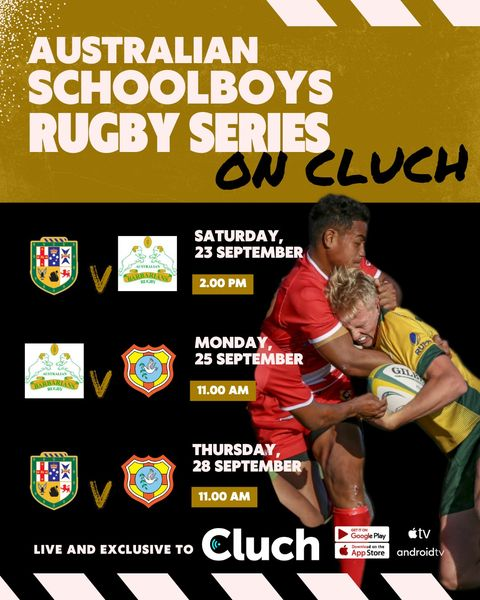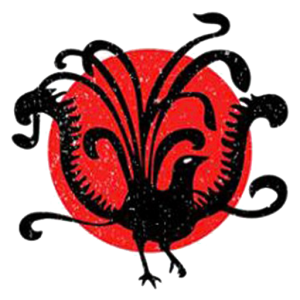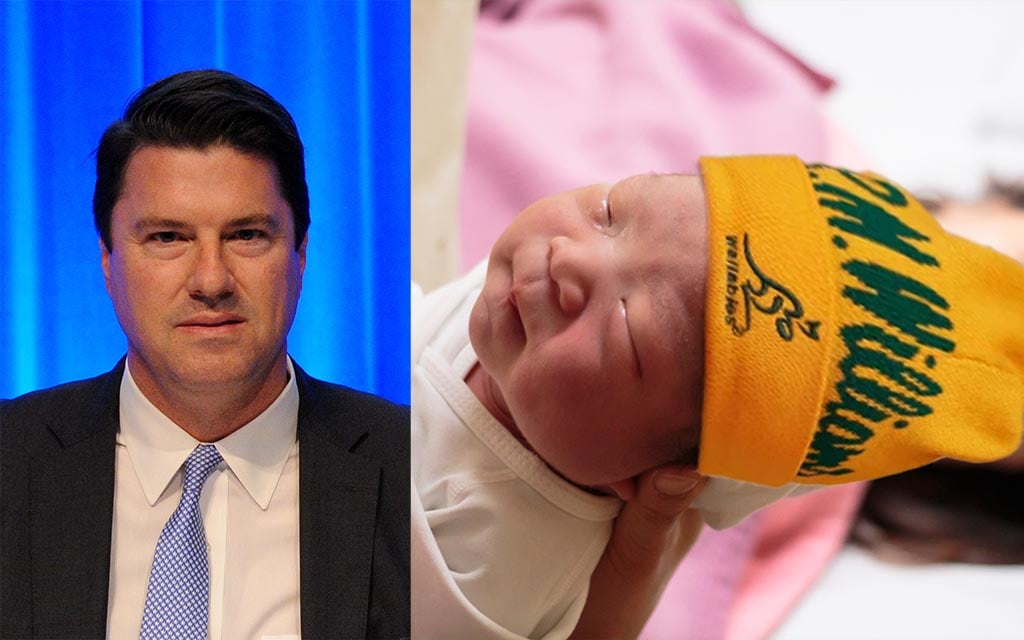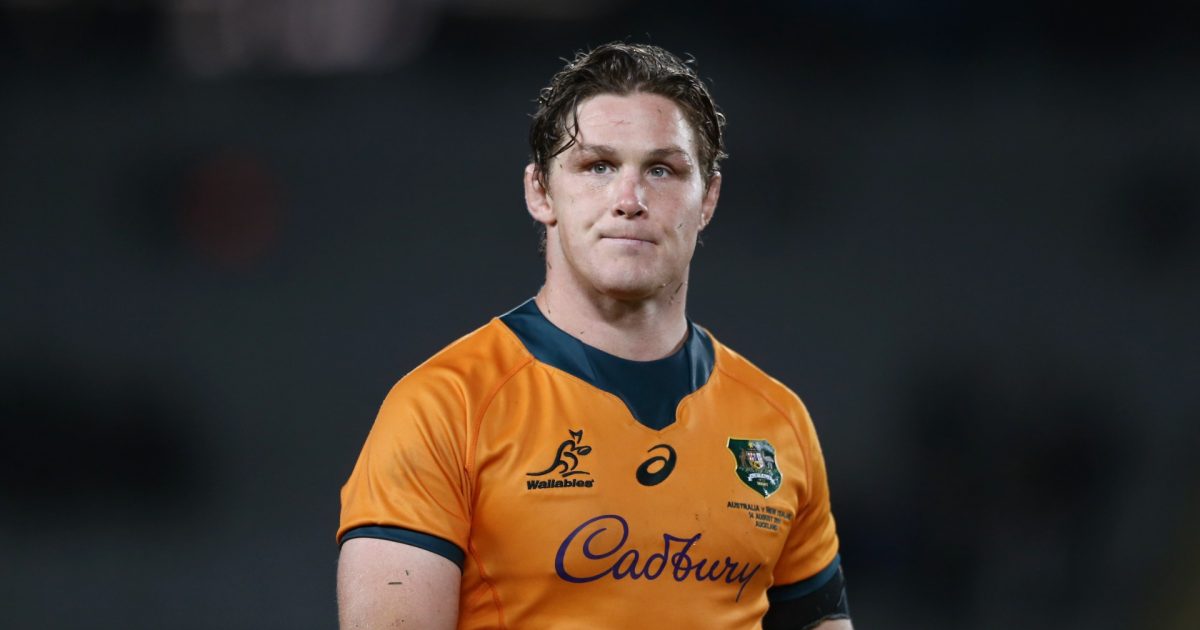Aussie Pro Rugby
-
-
The Australian women’s rugby union team has criticised the code’s governing body this week after they treated the “wives and girlfriends” of the Wallabies World Cup Squad to a weekend in Sydney to farewell the boys before they headed off the France in the front of a Qantas jet.
Known as the Wallaroos, the national women’s rugby team receives a tiny fraction of funding from Rugby Australia compared to the men’s team. Claims that the cost of the Wallabies’ outdoor gym would be enough to cover the women’s team for a whole year have been levelled at Rugby Australia’s boss Hamish.
The complaints against Rugby Australia were made in the form of an open letter, which nearly every Wallaroos player then shared on.
It’s been met with a pensive response from Hamish, who told the media today that rugby would be nothing without women.
“Women are a pillar of rugby union,” he told reporters at the code’s headquarters on Sydney’s Lower East Side.
“They give birth to Wallabies. They give birth to support staff that help the Wallabies be the best versions of themselves. Every coach has a mother. It’s a common misconception that a lot of private school students are from wealthy backgrounds. In some private school families, the woman also works to contribute money towards school fees. It’s actually quite common. Without women working in those families, their meathead sons would end up playing rugby league or no sport at all,”
“We don’t take women for granted here at Rugby Australia. I have a dream that one day, we will see a Matilda-level frenzy on the, uh, the, uh, the Wallabettes? Anyway, it’s all in development and we’re working with stakeholders to continue to push the paradigm on this problem to create more quixotic outcomes for that section of our species. Thanks.”
Hamish didn’t take any more questions.
-
Ten months after David Nucifora “challenged” his former national union to move towards a centralised system, The Roar can reveal Rugby Australia is preparing to announce an agreement in principle to work together with the five Super Rugby franchises to become more aligned.
For the past decade, centralisation has become a buzzword in Australian rugby after New Zealand Rugby and the Irish Rugby Football Union have reaped the benefits of moving to a centralised model.
It’s something Nucifora tried to usher through a decade ago, but failed to gain enough support from the states.
“I had my go at it,” Nucifora told The Roar last November.
“I tried to do my best to put in place certain things that I thought would work and there were other people that had different views.”
Australian rugby’s loss has been Ireland’s gain, with the Emerald Isle heading into the World Cup on top spot of World Rugby’s rankings.
While Andy Farrell’s men have an almighty tough task ahead of them, with Ireland to face Scotland, South Africa and Tonga in their pool before a likely match-up with either France or New Zealand in the quarter-finals, their consistency over the past five years has shown their strength.
In stark contrast, the plucky Wallabies have plummeted down the World Rugby rankings and been well outside the top two since their stunning run to the World Cup final in 2015.
etc etc
-
The official announcement: https://australia.rugby/news/australian-rugby-to-undertake-historic-strategic-reset-2023822?fbclid=IwAR22r_7KASucZj7S8CBURWtXGlyhsT_-kPszIKweJ34m6-Q88DlxJuRYbPg
Rugby Australia (RA), the Australian Super Rugby Clubs, Member Unions and the Rugby Union Players Association (RUPA) have agreed to pursue a historic strategic reset of Rugby in Australia.
With a once in a generation pipeline of major Rugby events set to supercharge the game in Australia, headlined by the 2025 Lions Tour, the Rugby World Cup for men in 2027, and the women’s World Cup in 2029, the vision for this transformation is for all levels to have clearly defined roles, with stakeholders aligned to work more collaboratively towards greater success for Australian Rugby on and off the field.
As part of the change:
- Member Unions will continue to oversee and deliver the Community game
- Super Rugby Clubs will be responsible for local talent development and pathways, as well as the operational delivery of Super Rugby Pacific and Super W programs, aligned with the National High-Performance Plan
- RA will lead the National High-Performance Plan and system, which includes national pathways and development programs, National Teams across XVs and Sevens and contracting players and key high-performance staff within Super Rugby Pacific, Super W and national programs.
The planned strategic reset between RA, Super Rugby Clubs, the Member Unions and RUPA is designed to implement a structure that:
- Continuously improves on-field results for Super Rugby Clubs across Super Rugby Pacific, Super W and Teams in Gold throughout the golden decade of major events in Australia
- Provides for increased investment in Women’s Rugby, with a particular focus on the high-performance programs and sustainable growth in player payments
- Attracts and retains the best Australian players, coaches and officials
- Drives focus on, and investment in the Community game – particularly with the expected surge in engagement and participation numbers following the Lions Tour and Rugby World Cups
- Increases fan engagement and grows the brands within Australian Rugby, subsequently generating more fans of the sport
- Improves the commercial performance of Super Rugby Clubs
- Streamlines the governance of professional Rugby.
Under the plan RA and its Member Unions around the country will work together to drive a stronger connection with the Community to create a thriving, sustainable, fun and inclusive game at the grassroots level.
The reset at the professional level will also incorporate a national contracting model ahead of the 2025 season – a project that RA, Super Rugby Clubs and RUPA have been developing over the last two years, and which will see an increase in overall investment in players to support retention and recruitment.
Rugby Australia CEO, Phil Waugh believes now is the ideal time for a strategic transformation of Australian Rugby, with an upcoming capital raise, the 2025 Lions Tour and two Rugby World Cups in 2027 and 2029 providing an ideal platform to recharge and refocus Rugby in this country.
“Together, we need to change our collective approach to ensure that Rugby in Australia can prosper, on and off the field – from the heartbeat of our game at the grassroots right through to our Wallabies, Wallaroos and Sevens teams.
“We firmly believe that strategic structural change is required if we are to deliver success for the game in the future – particularly with the pipeline of major Rugby events happening in our backyard through to 2032.
“This is a significant project and needs to be done through a spirit of partnership across Australian Rugby, motivated by the collective desire to ensure we are winning on the field and ensuring that we are sustainable and able to grow off it.
“The implementation of this model cannot be a one-size-fits-all model, and needs to reflect the specifics of each Super Rugby Club, Member Union and their markets.
“It will take time to successfully deliver this project, however we intend to formally commence work on rolling it out over the coming weeks, with a plan to methodically work through the process with our many stakeholders.”
“With the many exciting events on the horizon for Australian Rugby, it is important that we take this opportunity to really set up our system, and our Clubs to be more successful, and drive the game forward at all levels.”
NSW Waratahs Chairman, Tony Crawford: “The reset of professional Rugby in this country is long overdue. We are committed to RA’s new strategic direction which will give the Waratahs an even better opportunity to develop, attract and retain the rich seam of talent that we have, and to grow our game from grass roots, at every level. We look forward to working with Rugby Australia to return Rugby in NSW and Australia to its position as a powerhouse of the sport.”
ACT Brumbies Chairman, Matthew Nobbs: “The Brumbies will explore the process of helping shape the structure and direction of rugby in Australia. This club has a proud history of innovation and success in Australian rugby and we see this as an opportunity to drive rugby forward in the ACT and Southern NSW.”
Melbourne Rebels Chairman, Paul Docherty: “The Melbourne Rebels are strong supporters of the right structural change to enhance the professional game, while ensuring we retain our national footprint and a greater inclusion and pathway from community through HP and into our National teams. It is a positive move that SR Clubs and Member Unions are working through this together, and shows an intent to get our game back to the top where it belongs.”
Queensland Reds Chairman, Brett Clark: “The QLD Reds will be behind measures that will lead to more successful Super Rugby clubs and Australian sides on and off the field. There is a lot of detail to work through, and we are supportive to start on what the model will look like in Queensland and how we can contribute to ensure sustained success on-field at all levels.”
Western Force Chairman, Anthony Flannery: “Rugby is healthy and growing in Western Australia and has much to offer Australian rugby. We believe the changes that RA is proposing will allow all clubs and RA to work together to develop a high performance program that ensures a successful future for the sport in Australia – something all rugby fans in the country can be proud of and want to be part of. What that looks like in each province could be different, and we have plenty to work through as a group – however, it is an exciting opportunity for the game ahead of some major milestones that we have coming up.”
Rugby Union Players Association Chairman, Campbell Fisher: “As a playing group, anything that develops better players and playing conditions must be welcomed – and that is the stated intent of Rugby Australia’s strategy here, so we are supportive, and we will be keen participants in this process. The governing body has reiterated its commitment to five professional clubs and increased investment in Women’s Rugby, however with a more focused development system and greater clarity on the future contracting of players – steps that we endorse as a group, and which we believe will have a positive effect right across the game.”
-
My take: yay for centralisation! It will hopefully cut away some of the dead wood in our professional systems
BUT BUT BUT
- There is no word on what those pathways mean in terms of schools fucking everything up
- The Community Rugby arm is still going to have issues resolving conflicts across multiple Unions - particularly in NSW
- There is no mention in that statement of private equity, which is the elephant in the room
-
From Australian Schools Rugby FB:
The Best of Schoolboys Rugby Live and Exclusive on Cluch
Wed 20 Sept: ACT Schools v Tonga Schoolboys
Trilateral Series Sat 23, Mon 25 and Thu 28 September at Knox Grammar School, Wahroonga (Sydney).
Sat 23 Sep: Australian Schoolboys v Australian Schools Barbarians
Mon 25 Sep: Tonga Schoolboys v Australian Schools Barbarians
Thu 28 Sep: Tonga Schoolboys v Australian Schoolboys

-
@Machpants said in Aussie Rugby:
It's not a code switch, bloody morons.
It's RugbyPass. They are bloody morons and clickbait generators as @Stargazer said.
-
 "Woman Are A Pillar Of Rugby Union. They Give Birth To Wallabies" Explains RA Boss Hamish
"Woman Are A Pillar Of Rugby Union. They Give Birth To Wallabies" Explains RA Boss Hamish


